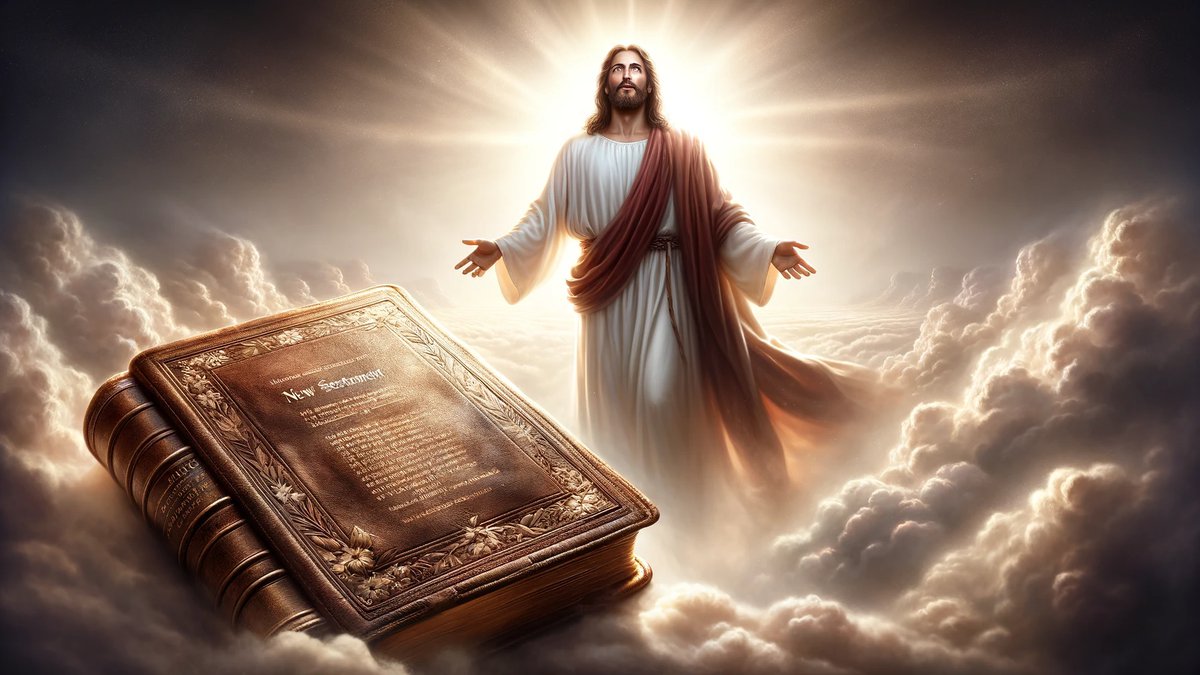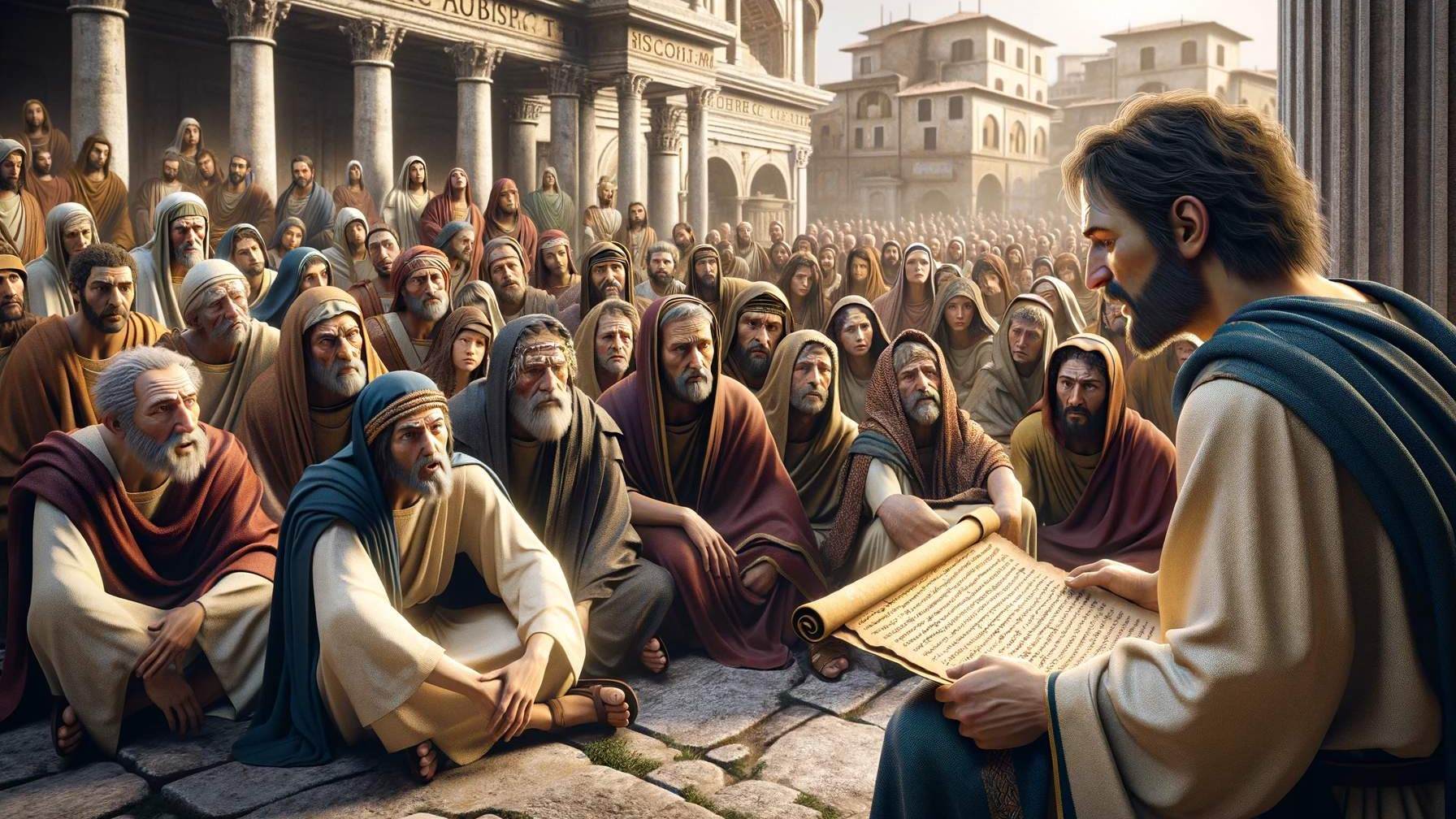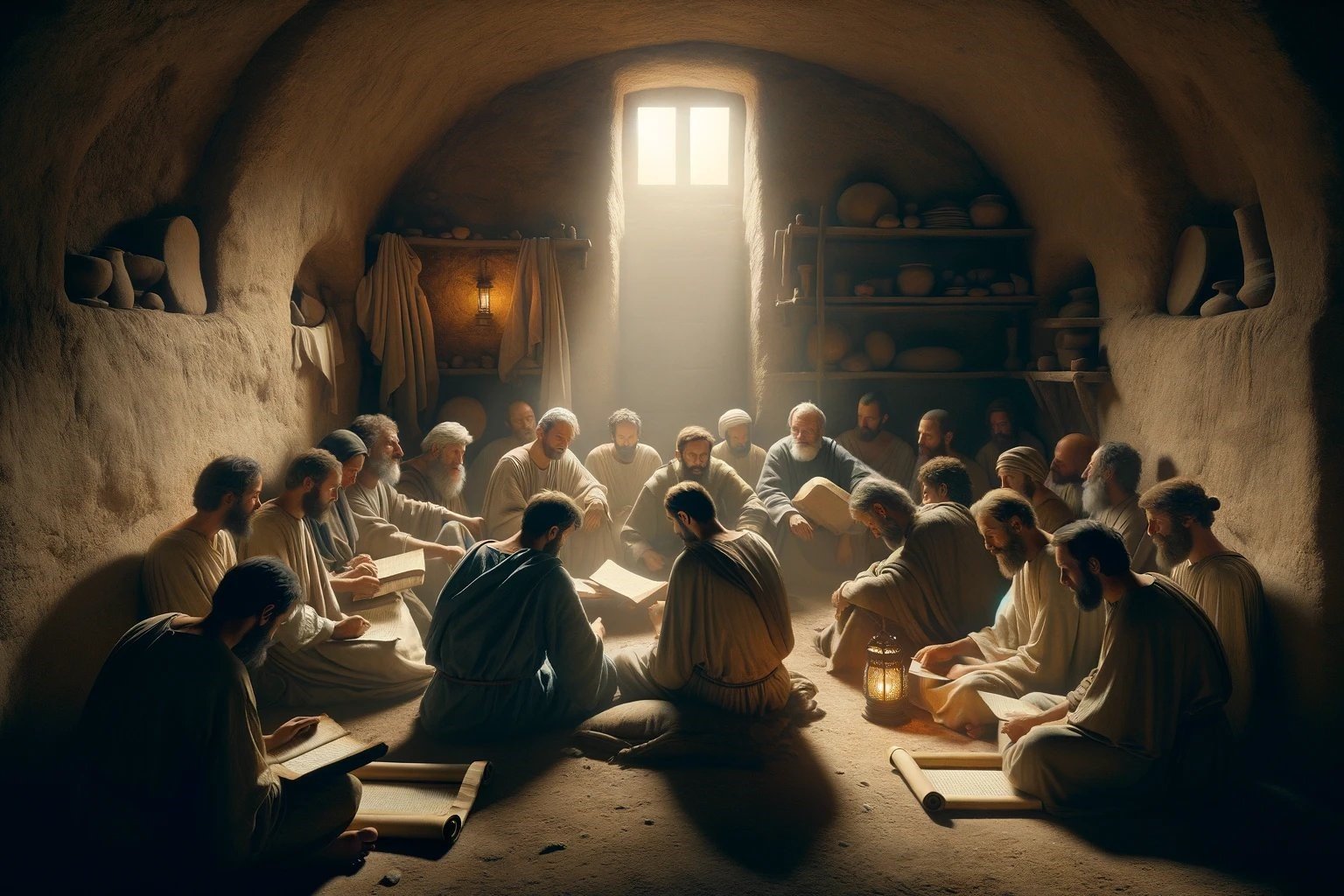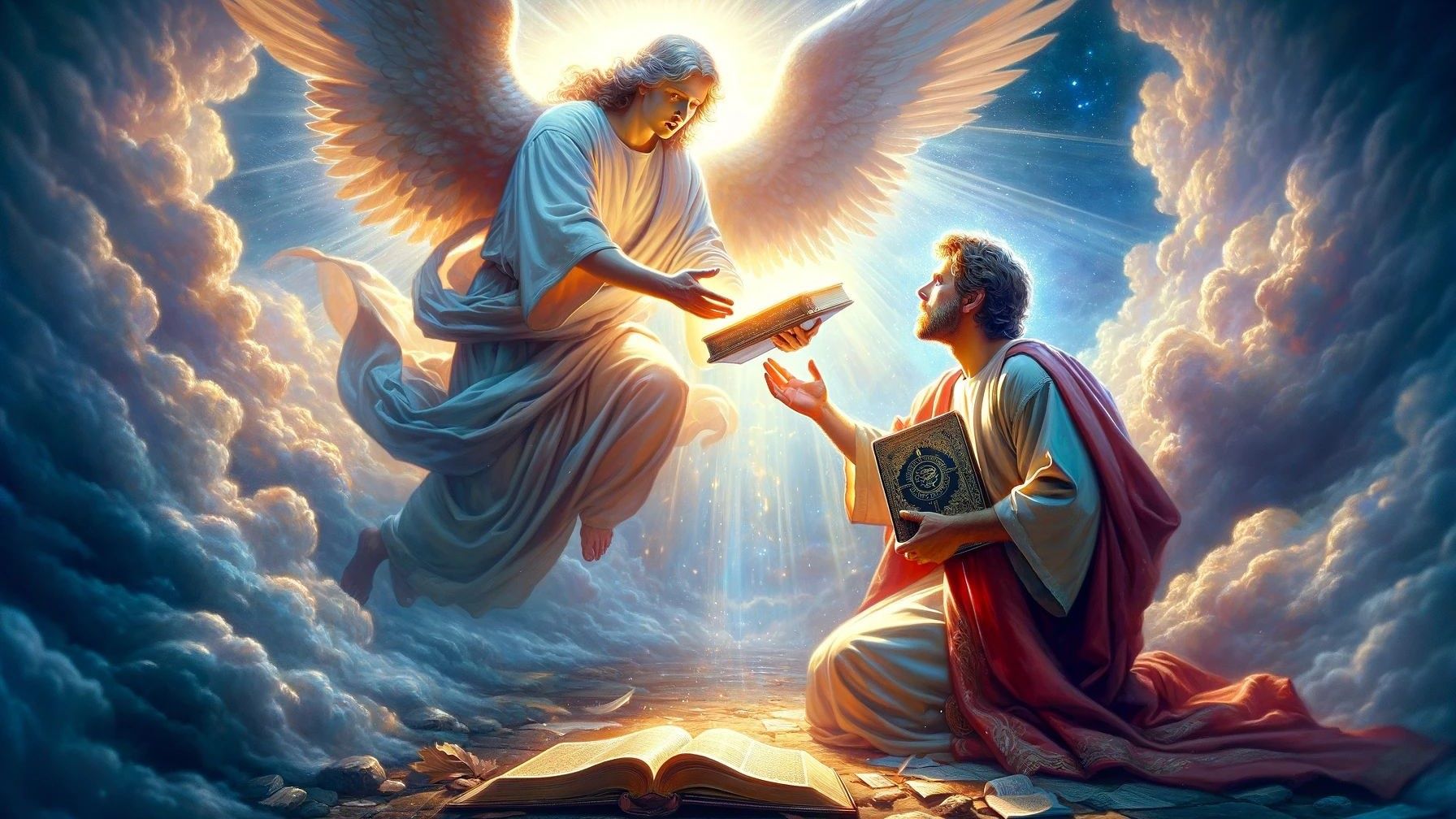Home>Bible Facts>Where In Revelation Is The Book Of Life Mentioned


Bible Facts
Where In Revelation Is The Book Of Life Mentioned
Published: February 11, 2024
Jason DeRose, Managing Editor at Christian.net, uses his expertise in religion and journalism to deepen understanding of faith's societal impacts. His editorial leadership, coupled with a strong academic background, enriches the platform’s diverse content, earning him recognition in both journalism and religious circles.
Discover where the Book of Life is mentioned in Revelation and explore fascinating Bible facts. Uncover the significance of this important concept in the biblical text.
(Many of the links in this article redirect to a specific reviewed product. Your purchase of these products through affiliate links helps to generate commission for Christian.net, at no extra cost. Learn more)
Table of Contents
Introduction
The Book of Life holds a significant place in biblical theology, particularly in the book of Revelation. This sacred book is shrouded in mystery and carries profound implications for believers. Its mention in the final book of the Bible sparks curiosity and prompts a deeper exploration of its meaning and relevance.
In the book of Revelation, the concept of the Book of Life is intricately woven into the narrative, serving as a symbol of divine knowledge and sovereignty. Understanding its significance requires delving into the rich tapestry of biblical history and theology, as well as grasping its implications for believers today.
As we embark on this exploration, we will unravel the various references to the Book of Life in Revelation, shedding light on its role in the divine plan. From the Lamb's Book of Life to the threat of being blotted out, each mention of the Book of Life carries profound implications that resonate through the ages.
Join us on this enlightening journey through the book of Revelation as we uncover the mysteries and revelations surrounding the Book of Life. Let's delve into the depths of biblical wisdom and unearth the timeless truths encapsulated within the sacred pages of this extraordinary book.
The Book of Life in Revelation
The Book of Life is a recurring motif in the book of Revelation, symbolizing divine knowledge and the eternal destiny of individuals. Its first mention in Revelation occurs in chapter 3, where the faithful in the church of Sardis are assured that their names will not be blotted out of the Book of Life. This reference underscores the concept of divine election and the assurance of salvation for those who remain steadfast in their faith.
In Revelation 13:8, the Book of Life is described as the Lamb's Book of Life, emphasizing the central role of Jesus Christ, the Lamb, in determining the eternal destiny of believers. This imagery reinforces the idea that salvation is intricately linked to the redemptive work of the Lamb, highlighting the sacrificial nature of Christ's atonement.
The Book of Life reemerges in Revelation 17:8, where it is associated with the names of the faithful who are written in it from the foundation of the world. This reference alludes to the divine foreknowledge and predestination of believers, emphasizing the eternal nature of God's redemptive plan.
Furthermore, Revelation 20:12 portrays a vivid scene where the dead are judged according to what is written in the books, including the Book of Life. This depiction underscores the accountability of individuals before God and the decisive role of the Book of Life in determining their eternal fate.
The final mention of the Book of Life in Revelation occurs in chapter 21, where the new Jerusalem is described as the dwelling place of those whose names are written in the Lamb's Book of Life. This portrayal signifies the ultimate fulfillment of God's redemptive purpose, where the redeemed find their eternal home in the presence of the Lamb.
Throughout the book of Revelation, the Book of Life serves as a poignant symbol of divine sovereignty, predestination, and the assurance of salvation for the faithful. Its recurring presence underscores the eternal significance of God's redemptive plan and the pivotal role of Jesus Christ, the Lamb, in securing the eternal destiny of believers.
As we continue our journey through the book of Revelation, the profound implications of the Book of Life will continue to unfold, offering timeless insights into the divine mysteries and the ultimate triumph of God's redemptive purpose.
The Lamb's Book of Life
The concept of the Lamb's Book of Life holds profound significance in the book of Revelation, symbolizing the eternal destiny of believers and the redemptive work of Jesus Christ, the Lamb. The imagery of the Lamb's Book of Life is intricately woven into the narrative, serving as a poignant reminder of Christ's sacrificial atonement and the assurance of salvation for the faithful.
Revelation 13:8 introduces the Lamb's Book of Life, portraying Jesus Christ as the Lamb who was slain from the foundation of the world. This powerful imagery harkens back to the Old Testament sacrificial system, where the Passover lamb foreshadowed the ultimate atoning sacrifice of Christ. The designation of the Book of Life as the Lamb's Book underscores the central role of Jesus in determining the eternal destiny of believers, emphasizing the inseparable link between His redemptive work and the assurance of salvation.
The Lamb's Book of Life represents the divine registry of the redeemed, where the names of the faithful are inscribed by virtue of their faith in Christ. This imagery conveys the intimate connection between the sacrificial death of the Lamb and the eternal security of believers, highlighting the redemptive power of Christ's atonement. The act of having one's name written in the Lamb's Book of Life signifies the assurance of eternal life and the unshakable promise of salvation through faith in Jesus Christ.
Furthermore, the portrayal of the new Jerusalem in Revelation 21 as the dwelling place of those whose names are written in the Lamb's Book of Life encapsulates the ultimate fulfillment of God's redemptive purpose. This celestial city stands as a testament to the eternal inheritance of the redeemed, where they will dwell in the presence of the Lamb for all eternity. The Lamb's Book of Life serves as the divine ledger of the redeemed, ensuring their eternal fellowship with Christ in the new Jerusalem, where sorrow and pain will be no more.
In essence, the Lamb's Book of Life embodies the eternal assurance of salvation for believers, secured through the sacrificial atonement of Jesus Christ, the Lamb. Its profound significance reverberates throughout the book of Revelation, underscoring the unshakable promise of eternal life for those whose names are inscribed in the Lamb's Book of Life.
The Overcomers' Names in the Book of Life
The concept of overcomers' names in the Book of Life is a compelling theme in the book of Revelation, signifying the victorious triumph of believers and their eternal standing in God's redemptive plan. Throughout the book of Revelation, the overcomers are depicted as those who have persevered in their faith, overcome trials, and remained steadfast in their commitment to Christ. Their names, inscribed in the Book of Life, serve as a testament to their unwavering devotion and the assurance of their eternal reward.
Revelation 3:5 presents a profound promise to the overcomers in the church of Sardis, assuring them that they will be clothed in white garments, and their names will not be blotted out of the Book of Life. This assurance underscores the eternal security of the overcomers and their privileged status as recipients of God's unmerited favor. The imagery of white garments symbolizes purity and righteousness, signifying the overcomers' victorious standing before God.
Furthermore, Revelation 21:27 emphasizes the exclusive privilege of the overcomers whose names are written in the Lamb's Book of Life. This portrayal underscores the distinct honor bestowed upon those who have overcome through their faith in Christ, highlighting their eternal citizenship in the new Jerusalem. The overcomers' names in the Book of Life serve as an indelible testimony to their triumphant victory over sin and the world, securing their eternal inheritance in the presence of the Lamb.
The overcomers' names in the Book of Life encapsulate the divine recognition of their unwavering faith and steadfast commitment to Christ. Their triumph over adversity and their unyielding devotion are eternally commemorated in the sacred registry of the redeemed, affirming their place in God's eternal kingdom. The overcomers stand as living testaments to the transformative power of faith and the unshakable promise of eternal life secured through the redemptive work of Jesus Christ.
In essence, the overcomers' names in the Book of Life serve as a resounding declaration of their victorious standing in God's redemptive plan, affirming their eternal reward and unassailable position as heirs of the new Jerusalem. Their unwavering faith and triumphant perseverance are forever etched in the annals of divine history, bearing witness to the transformative power of God's grace and the unyielding resolve of those who overcome through faith.
The Threat of Being Blotted Out of the Book of Life
The ominous prospect of being blotted out of the Book of Life looms as a sobering theme in the book of Revelation, serving as a stark reminder of the potential consequences for those who falter in their faith. This haunting imagery evokes a sense of urgency and accountability, underscoring the gravity of spiritual complacency and the peril of straying from the path of righteousness.
Revelation 3:5 unveils the unsettling warning of having one's name blotted out of the Book of Life, presenting a sobering reality for those who neglect the call to steadfast faithfulness. The implication of this threat reverberates with profound significance, highlighting the inherent risk of forfeiting one's eternal standing in the divine registry of the redeemed. The imagery of being blotted out evokes a sense of irrevocable loss and separation from the assurance of salvation, serving as a poignant cautionary tale for believers.
The prospect of being blotted out of the Book of Life underscores the critical importance of unwavering faith and steadfast devotion to Christ. It serves as a poignant reminder of the fragility of spiritual security and the imperative of remaining vigilant in the face of adversity and temptation. This sobering warning compels believers to heed the call to perseverance and spiritual diligence, guarding against the insidious threat of spiritual apathy and complacency.
Furthermore, the specter of being blotted out of the Book of Life underscores the solemn reality of divine judgment and accountability. It serves as a sobering admonition against the perils of spiritual lukewarmness and the dire consequences of neglecting the call to wholehearted devotion to Christ. The imagery of being blotted out stands as a haunting reminder of the eternal ramifications of spiritual indifference, compelling believers to embrace the imperative of steadfast faithfulness and unwavering commitment to the redemptive work of Jesus Christ.
In essence, the threat of being blotted out of the Book of Life serves as a poignant admonition to believers, underscoring the imperative of unwavering faith and resolute devotion to Christ. It stands as a solemn reminder of the eternal stakes at hand and the imperative of embracing the call to spiritual vigilance and wholehearted commitment to the redemptive work of the Lamb.
Conclusion
The exploration of the Book of Life in the book of Revelation unveils profound insights into the divine mysteries and the eternal significance of believers' names inscribed in this sacred registry. Throughout the narrative, the Book of Life serves as a poignant symbol of divine sovereignty, predestination, and the assurance of salvation for the faithful. Its recurring presence underscores the eternal significance of God's redemptive plan and the pivotal role of Jesus Christ, the Lamb, in securing the eternal destiny of believers.
The imagery of the Lamb's Book of Life encapsulates the eternal assurance of salvation for believers, secured through the sacrificial atonement of Jesus Christ. Its profound significance reverberates throughout the book of Revelation, underscoring the unshakable promise of eternal life for those whose names are inscribed in the Lamb's Book of Life. The concept of overcomers' names in the Book of Life stands as a resounding declaration of their victorious standing in God's redemptive plan, affirming their eternal reward and unassailable position as heirs of the new Jerusalem.
However, the haunting prospect of being blotted out of the Book of Life serves as a sobering reminder of the potential consequences for those who falter in their faith. This ominous imagery underscores the gravity of spiritual complacency and the peril of straying from the path of righteousness, compelling believers to heed the call to perseverance and spiritual diligence.
As we conclude this enlightening journey through the book of Revelation, the profound implications of the Book of Life continue to resonate, offering timeless insights into the divine mysteries and the ultimate triumph of God's redemptive purpose. The Book of Life stands as a testament to the eternal assurance of salvation for those who remain steadfast in their faith, while also serving as a solemn admonition against the perils of spiritual indifference.
In essence, the Book of Life in Revelation serves as a timeless testament to the unshakable promise of eternal life for the faithful, the transformative power of faith, and the imperative of unwavering commitment to the redemptive work of Jesus Christ. It beckons believers to embrace the call to spiritual vigilance, wholehearted devotion, and unwavering faithfulness, ensuring their enduring place in the divine registry of the redeemed for all eternity.














